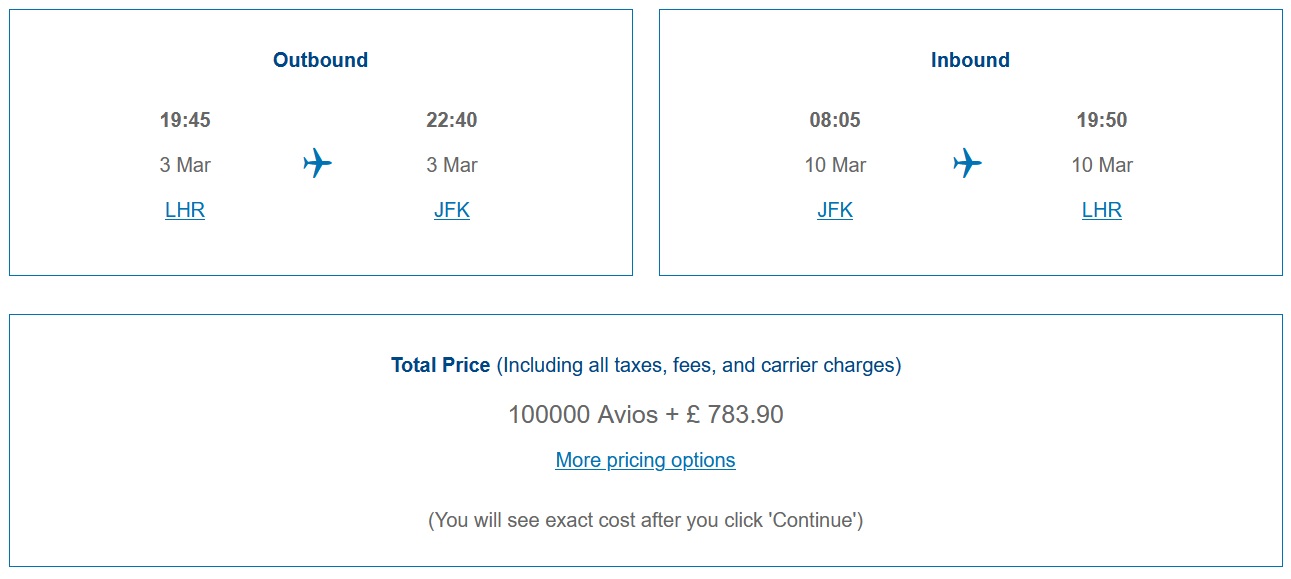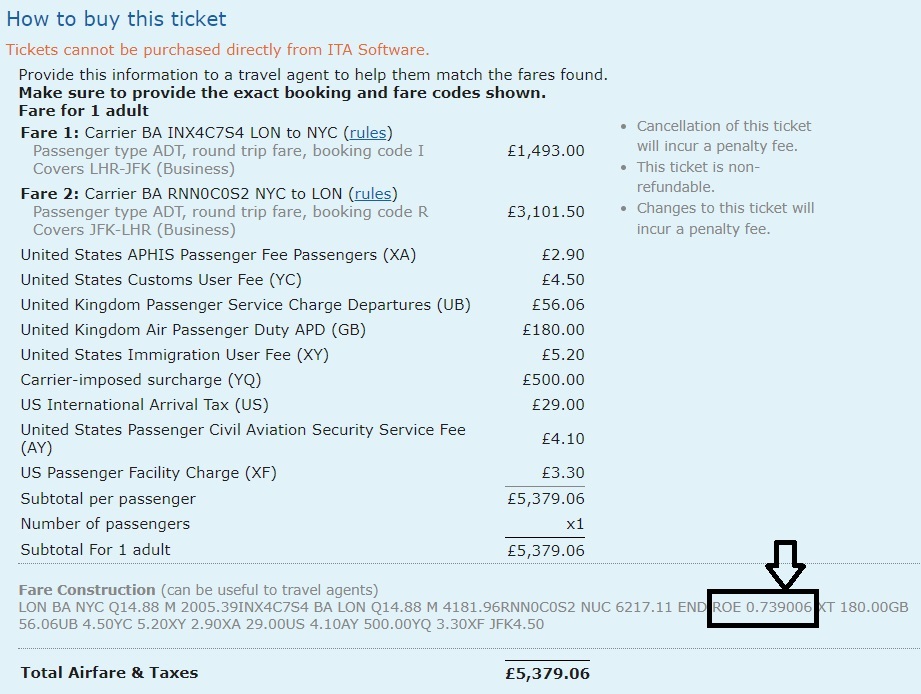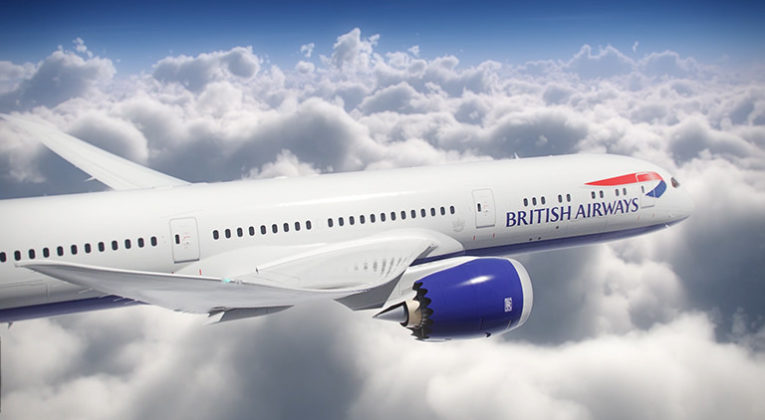Some links to products and partners on this website will earn an affiliate commission.
Two of the major travel blogs in the UK have recently highlighted increases in the cost of Avios redemptions on British Airways Business Class long-haul flights. This is undoubtedly true. Both articles, however, seek out some form of “justification” for the increase, yet completely overlook the obvious.

Breaking Down “Taxes, Fees and Carrier Charges”
There is no denying that British Airways’ presentation of award pricing is pure genius. Although the phrase correctly and legally reflects the actual situation, many people shorten the concept and say/write “taxes”, even though the vast majority of the £ total – especially in Business or First Class – is “carrier charges”, which would actually come first if the list were in alphabetical order. This means that many people often blame the government or airport authorities for the concept (or any increase). Even those who should know better…
It is very easy to find a break-down of these “taxes, fees and carrier charges” by running a search on ITA Matrix.

The total amount charged by British Airways Executive Club on an “award ticket” is very close to the non-fare elements that you would pay on a cash fare, as shown by ITA Matrix. (any slight differences are indeed due to the exchange rate applied to US dollar denominated taxes)
In the case of a return flight from London to New York in Business Class, British Airways is keeping £500 of the £784 total, with the rest indeed being paid to governments and airports.
Therefore, British Airways is Never Specifically Penalising Award Tickets
Even though nobody pays even the slightest attention to the breakdown of their paid fare into the various components – fare, taxes, fees and carrier charges – you pay them every single time you book a paid flight.
When you book a long-haul award ticket on British Airways using Avios, you cover the “fare” element using your Avios, but pay all of the rest in cash.
So… if you are seeing an increased cost of award flights, it isn’t because British Airways is specifically targeting redemptions, it’s that people buying paid fares simply don’t notice the increase. Everybody is paying more.
Why Increase Surcharges?
Although actual taxes and fees can change – it might be Heathrow increasing user fees or a country increasing its taxation of aviation – the vast majority of the increase is likely to be YQ – i.e. Carrier Imposed Surcharge.
Airlines got themselves into lots of trouble years ago by labelling these surcharges as “fuel surcharges”. As a result, they are now called “carrier-imposed surcharges”. They still exist for one simple reason – and NO… it’s not about gouging loyalty programme members. Surcharges help airlines to update their fares more often, without risking manual “fat-finger” human errors. (it also helps in situations where corporate discount deals only apply to “fares”, not “charges”)
British Airways offers a multitude of fare classes on each flight. You might have seen something that looks like this.
![]()
F and A are First Class. J is often flexible Business Class and I the most-discounted Business Class fare. Y, K, L, V, etc. are all Economy Class fares. The number refers to the number of tickets that the airline is willing to sell in each fare bucket.
British Airways must publish a fare for each and every fare “bucket” for each and every origin / destination. This results in thousands, if not millions, of different combinations.
If, for whatever reason, British Airways wants to increase its fares, it can either:
- change every single fare – i.e. J, C, D, and I for Business Class – manually for every combination of origin/destination
- increase the surcharge that applies to all fare types equally
In other words, it is far easier for British Airways to “increase YQ for all United Kingdom to North America Business Class flights by £50” that it would be to increase the “J”, “C” “D” and “I” underlying airfares for every single combination of origin/destination between the UK and North America. (there is more nuance and granularity to surcharges, but I am simplifying here)
Why Now?
Here’s where we can feel free to speculate.
My first thought is that the price of oil is rising, due to the potential invasion of Ukraine. Brent Crude is now trading over $95 a barrel, when it spent the majority of 2021 in the $60-85 range. So even though British Airways wouldn’t dare to justify an increase in YQ by referring to the price of oil, this is nonetheless a possible explanation.
And secondly, now that the United States has reopened to foreign visitors – with the rest of the world also gradually reopening – there is simply more demand for air travel. Therefore British Airways believes that it can charge more across the board. It certainly helps that a percentage of travellers will simply be spending British Airways vouchers instead of actual cash.
Bottom Line
Do awards now cost more on British Airways? Undoubtedly. But the actual “discount” you receive from redeeming Avios is exactly the same as it was before – i.e. you don’t pay for the underlying fare. Simply put… everybody is now paying more for British Airways flights, but you only ever notice when looking at award pricing.
To be clear, I’m not defending British Airways here – it’s been over a decade since I last spent Avios on a long-haul British Airways award flight, precisely due to the outrageous surcharge policy – but I just wanted to highlight that award pricing is collateral damage, not the driver of an increase that many people are now noticing…
What do you think? Let us know in the comments section…






Leave a Reply